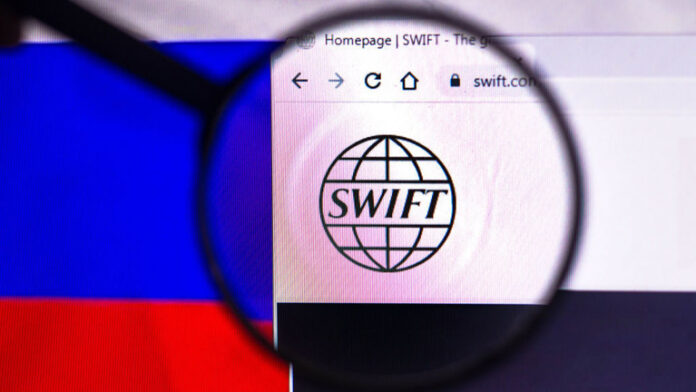In a strategic move reshaping international trade dynamics, BRICS members Russia and Iran have officially bid farewell to the SWIFT payment system for cross-border transactions.
Instead, the two nations have embarked on a new approach, opting for direct bank transfers to settle their international trade deals.
The decision marks a significant departure from the traditional reliance on the SWIFT payment system, which has long been a standard for global financial transactions. Russia and Iran have mutually agreed to conduct their trade affairs directly through banks, streamlining the process and reducing dependency on external financial systems.
One noteworthy aspect of this shift is the choice to engage in direct bank transfers using their respective local currencies, bypassing the traditional reliance on the U.S. dollar. This move not only enhances the autonomy of both nations but also serves as a testament to their commitment to forging stronger economic ties.
The transition away from SWIFT is seen as a strategic maneuver, providing Russia and Iran with more control over their financial transactions and reducing exposure to external restrictions amid their aggressive foreign policy choices.
As the geopolitical landscape continues to evolve, the decision by Russia and Iran to embrace direct bank transfers signals a new chapter in their economic relationship and underscores the nation’s hope for the growing significance of BRICS cooperation in shaping international trade norms.



